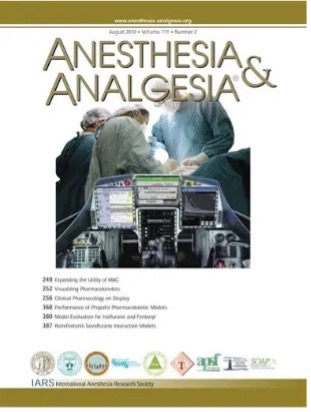As healthcare settings are under increasing pressure to reduce their carbon footprint, the use of some inhaled anaesthetics is being challenged across the European Union and beyond. Concerns about the impact of restricting anaesthetic options on patient safety and clinical choice are now being raised. Climate scientists have also highlighted that the emission metric used for policy-making is not appropriate to compare the impact of these short-lived gases with carbon dioxide.
This site aims to provide the latest information in order to inform the anaesthesiology community, and ultimately contribute to optimal patient care.
You will find the following information on this page:
- On-demand recording of symposium, ‘A Paradigm Shift: Let the Science Speak for Itself on Climate Impact of Volatile Anaesthesia’ (1 hour CPD credit)
- Speaker biographies
- Relevant publications
On Demand video training with 1 hour CPD credit
Please watch this recording of the symposium, A Paradigm Shift: Let the Science Speak for Itself on Climate Impact of Volatile Anaesthesia that was held during the Euroanaesthesia (ESAIC) meeting in Lisbon, Portugal (25 – 27 May 2025).
A certificate for 1 hour CPD will be issued after watching the video.
The symposium was sponsored by Baxter but neither speaker received fees for their contributions.

What you will learn from this video
- Gain an understanding of new scientific data on the climate impact of volatile anaesthesia
- Be able to objectively differentiate between common misconceptions and scientific facts on the environmental impact of volatile anaesthetics

Speaker biographies
Dr. Robert Leonard Kleinberg, Ph.D.
Adjunct Senior Research Scholar, Columbia University
Non-Resident Senior Fellow, Boston University

Robert holds a B.S. in Chemistry (Honors) from the University of California, Berkeley, and a Ph.D. in Physics from the University of California, San Diego. Since 2018, he has served as an Adjunct Senior Research Scholar at Columbia University’s School of International and Public Affairs and as a Non-Resident Senior Fellow at Boston University’s Questrom School of Business.
He has testified before the U.S. Congress and co-authored the National Petroleum Council’s Greenhouse Gases Study. Robert also coordinated comments to the EPA on methane emissions and organized symposia for the European Commission on measurement and regulation of methane emissions.
Additionally, he has authored reports for the World Bank and contributed to the International Energy Agency, focusing on sustainable practices in the fossil fuel sector.
Previously, Robert was a Schlumberger Fellow (1999-2018), advising CEOs and senior management on business strategy regarding fossil fuels, alternative energy sources, and carbon capture.
Dr. med. Laurentiu Marin, MD
Independent Consultant Anaesthesiologist,
Bern, Switzerland

Laurentiu is an Independent Consultant Anaesthesiologist with German Board Certifications in Anaesthesiology, Emergency Medicine, and Intensive Care Medicine. He completed his doctoral studies at the University of Bonn, Germany, and has a background in research, with a focus on innovative approaches in anaesthesiology.
As an independent consultant, Laurentiu has implemented sustainable gas practices, including halogenated anaesthetic gas capture systems, to reduce hospitals CO2 footprint. He has authored publications on climate change and anaesthetic emissions, including “Climate Change, Emissions of Volatile Anesthetics, and Policy Making: The Case of Desflurane.”
Laurentiu is interested in continuing to contribute to advancements in anaesthesiology and promoting sustainable practices.
Relevant publications
This article presents new climate modelling, demonstrating that the environmental effects of inhaled anaesthetics are minimal and reversible. It also describes evidence from the climate science literature showing that simplistic metrics like Global Warming Potential are not suitable to estimate the impact of short-lived gases compared with carbon dioxide.
Click image to follow link.
References
- Marin L, Kleinberg R. Climate change, emissions of volatile anesthetics, and policy making: The case of desflurane. Anesth Analg. 2025;141(1):123-7. DOI: 10.1213/ANE.0000000000007378
